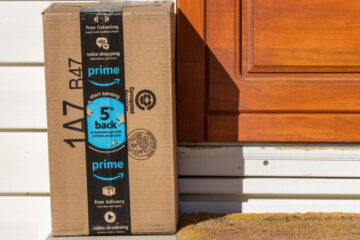In the 2010s and 2020s, craft brewing had a moment. It seemed like every community had multiple locally-owned breweries. These were relatively small businesses that eeked out a living,
Many of them simply sold beer on-site and did not offer food. Some got more sophisticated and added kitchens while also offering their beers wholesale to restaurants, grocery, and liquor stores.
Related: Popular whiskey brand files for Chapter 11 bankruptcy
There was a large devoted following of beer drinkers who acted like wine drinkers. They went on pub crawls, tried new beers, and supported a growing craft brew community.
A few of these local craft brew players expanded regionally and even nationally. It was a trend that got big enough for some of the big beer brewers to get involved.
💵💰Don’t miss the move: Subscribe to TheStreet’s free daily newsletter💰💵
In some cases, big beer brands created their own craft brews. Molson Coors, for example, created Blue Moon — a craft beer with a local origin story backed by the global brand.
Many locally created craft brews ended up being owned by some of the industry’s biggest players. That has not always ended well.
Some local beers managed to go national
Image source: Shutterstock
Anheuser-Busch Inbev made a craft brew bet
Many craft brewers created relationships with bigger players for distribution and production reasons. A small brewery only has so much capacity, and a local company can’t affordably deliver its product outside of a very small area.
That’s how the long relationship between the Craft Brew Alliance (a collection of local craft brewers) and Anheuser-Busch Inbev (BUD) began. It was a long partnership that eventually led to a purchase.
“Today, Craft Brew Alliance and Anheuser-Busch jointly announce the closing of their expanded partnership agreement first announced last November. Effective today, CBA’s diverse portfolio of lifestyle brands and award-winning breweries will join Anheuser-Busch’s Brewers Collective, a high-performing collection of craft partners committed to providing consumers with innovative, quality beers and investing in their local communities,” the companies shared in a press release.
More bankruptcies:
Popular restaurant and bar chain files for Chapter 11 bankruptcyPopular athletic shoe chain files for Chapter 11 bankruptcyAward-winning cosmetics brand files for Chapter 11 bankruptcy
Under the deal, Anheuser-Busch hired CBA’s employees and welcomed many of its top executives into rolls leading some of the acquired brands. The agreement also included taking over the Portsmouth, New Hampshire, beer brewery that produced beer for the CBA companies.
As part of the deal Anheuser-Busch acquired brands including Kona Brewing Co.’s mainland and international operations and regional brands Appalachian Mountain Brewery, Cisco Brewers, Omission Brewing Co., Redhook Brewery, Square Mile Cider Co., Widmer Brothers Brewing, and Wynwood Brewing Co.
Under Anheuser-Busch, they were housed within the Brewers Collective portfolio.
Craft Beer Alliance Brewery closed
While the overall beer market has largely been flat, the Covid pandemic devastated the local craft brew market.
Slower sales due to changing trends and increased debt loads drove many regional favorites, including Chicago’s Metropolitan Brewing, New Jersey’s Flying Fish, Denver’s Joyride Brewing, Tampa’s Zydeco Brew Werks, and Cleveland’s Terrestrial Brewing, into bankruptcy.
In the case of brands owned by larger players, the changing market has forced tough decisions. Anheuser-Busch has made one of those decisions by choosing to end production at CBA’s New Hampshire brewery.
Some of that production will move from the 104,000-square-foot CBA Brewery to the Wicked Weed Brewery in Asheville, North Carolina, in which Anheuser-Busch just invested $1 million.
The CBA brewery produced Kona, RedHook IPA, and Omission beers, among others.
Anheuser-Busch did not respond to a request from FoodDive for comment on how many jobs would be affected.
Related: Iconic ice cream chain unexpectedly closing locations
Anheuser-Busch purchased Wicked Weed in 2017.
“Wicked Weed, founded in Asheville in 2012 by Walt and Luke Dickinson and lifelong friends Ryan, Rick and Denise Guthy, has created over 500 different beers since it opened almost five years ago. Starting with clean West Coast IPAs and authentic Belgian ales, Wicked Weed has progressively moved into creating sours,” the company shared at the time of its sale in 2017.
The craft brew brand owns and operates four facilities in Asheville: their original Downtown brewpub, where they produce over 150 different beers a year.


